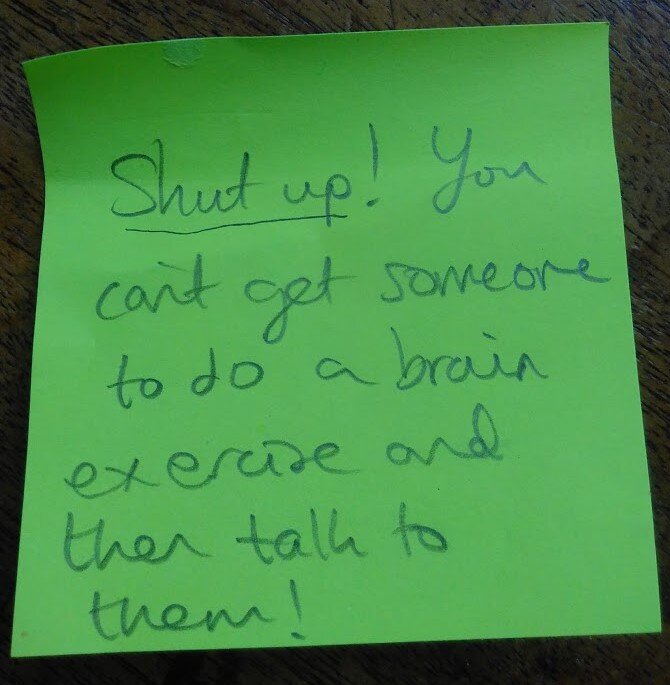
This week I’ve been delivering some online training for Teaching Assistants. It’s about talk, and how to use it skilfully to develop independent, successful learners.
In preparation, I asked my Mum to try a number challenge which would form part of the TA/learner role play activities. As she started the activities, I spoke to her, offering encouragement, advice and practical tips – as we often do in the classroom. She looked at me strangely.
I continued to offer support to see what the effect would be. In the end, infuriated and exasperated, she said to me, “Shut up! You can’t get someone to do a brain exercise and then talk to them!”
Yet so often we do.
Here are some reflections from the Teaching Assistants after they tried this activity:
Sometimes if there are too many suggestions your brain goes blank.
I am guilty of talking too much rather than backing off and letting the child try and achieve it.
This has made me realise we need to give children more quiet thinking time and not jump in just because there is a silence.
So… my course about talk is also about not talking sometimes.
Remember,
“Your silence provides the soil in which the child’s solutions can grow.”
Faber & Mazlish: How To Talk So Kids Will Listen and Listen So Kids Will Talk
My top three strategies to make sure every pupil speaks during whole-class learning
An opportunity to take your teaching to the next level
Statements to get your class thinking and talking in the lead-up to the holidays
Three steps to help your class develop their listening skills
What will happen when you remove the fear of being wrong?
I highly recommend this podcast to anyone with an interest in oracy education



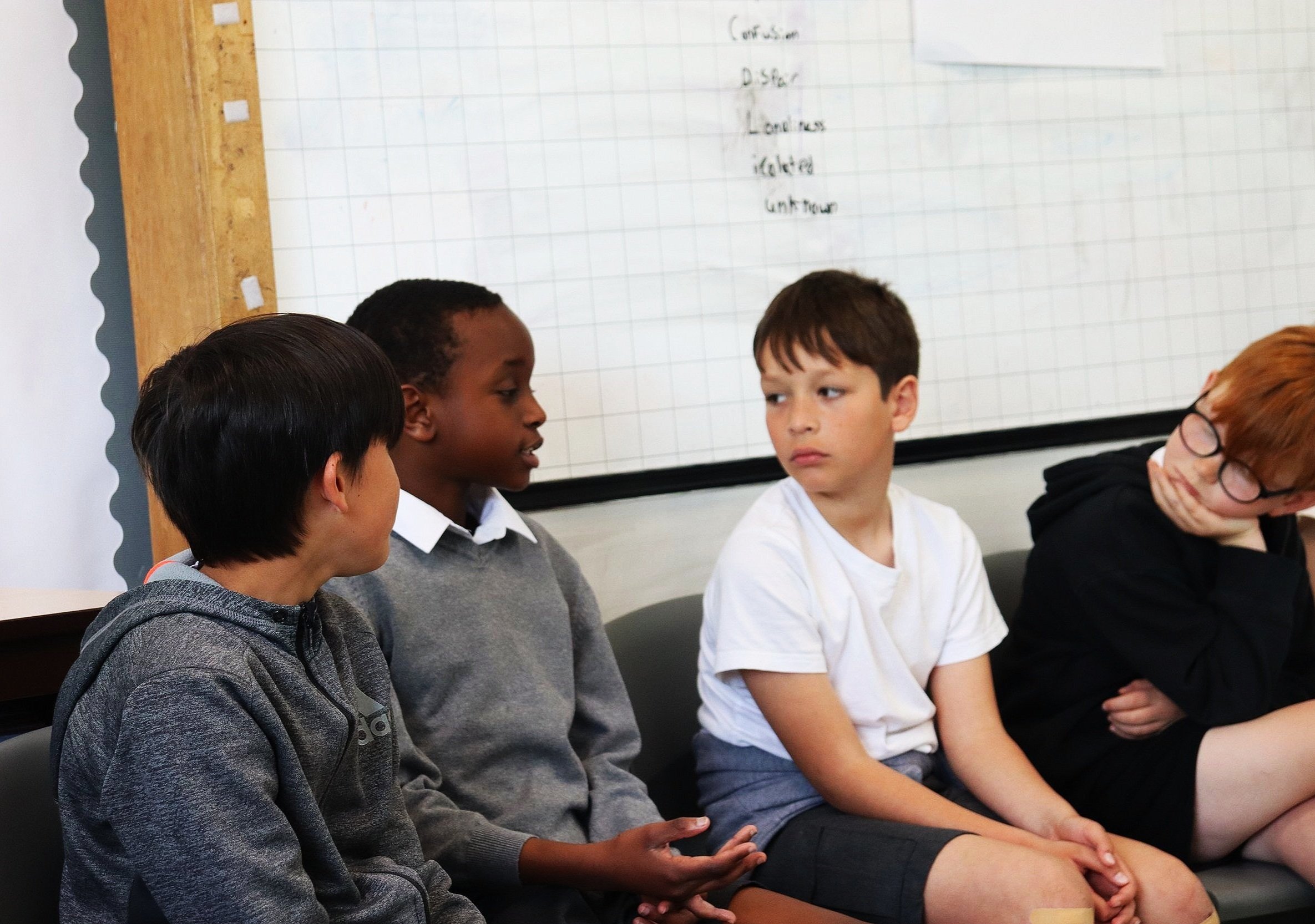





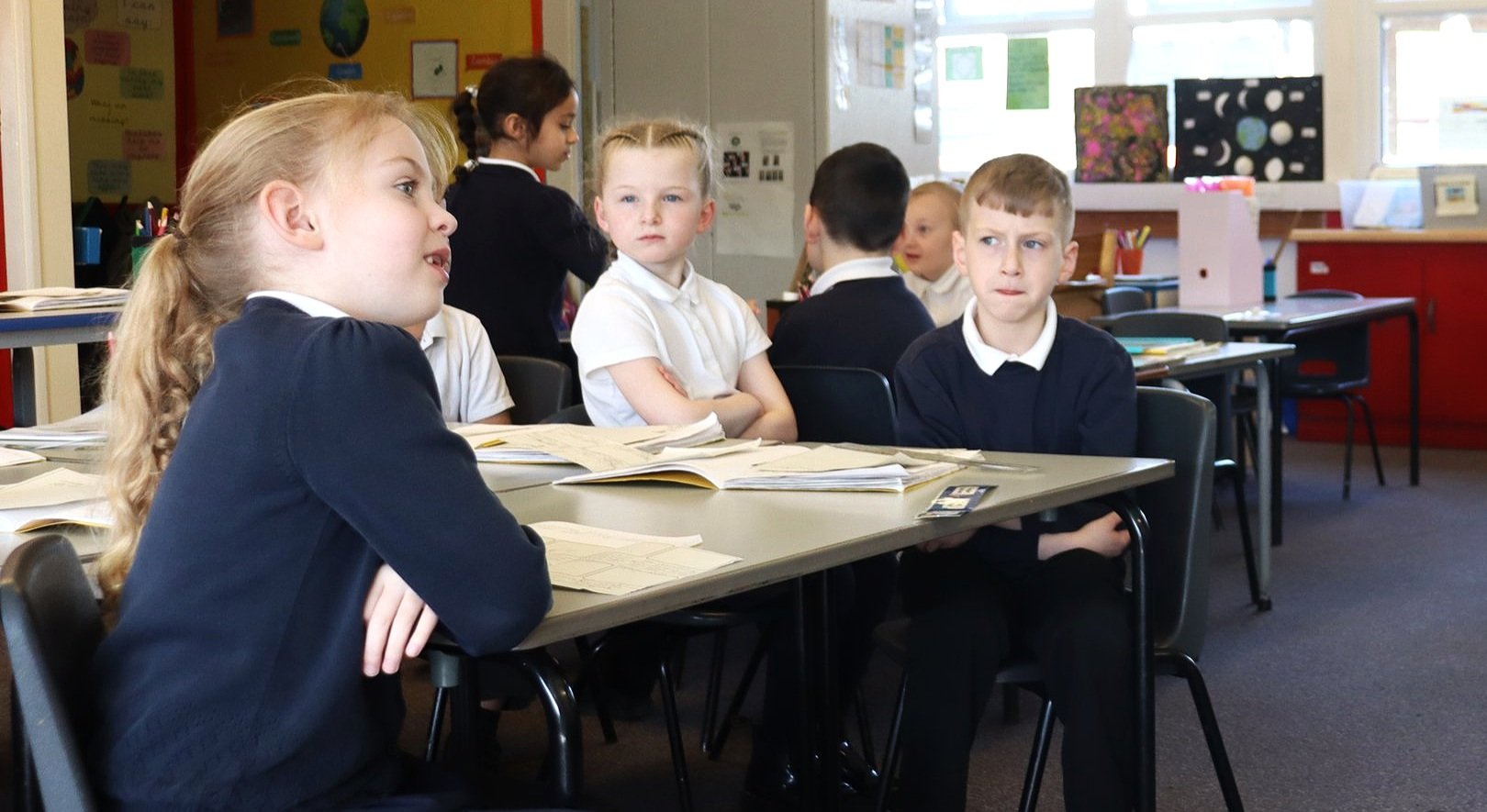










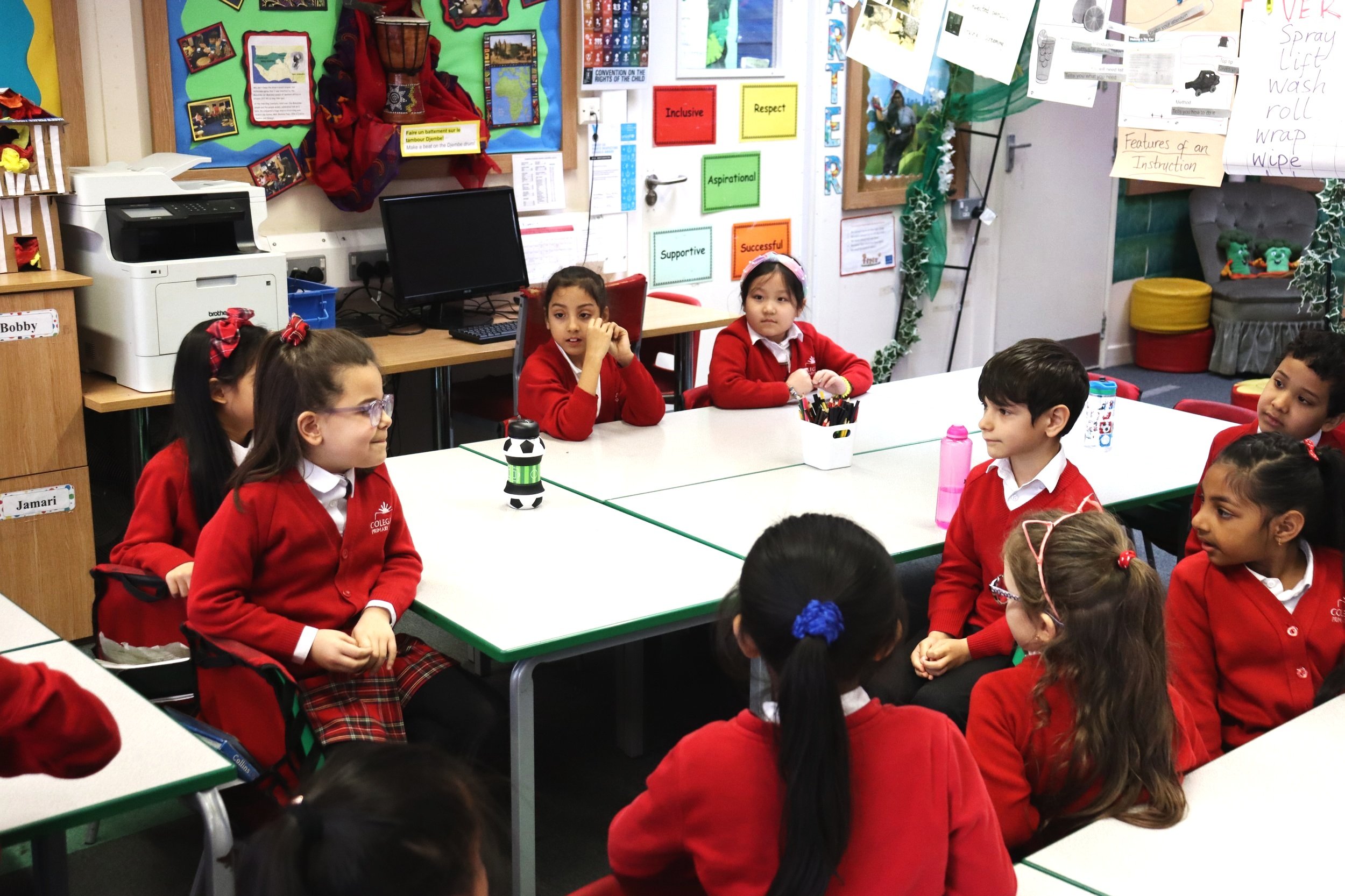
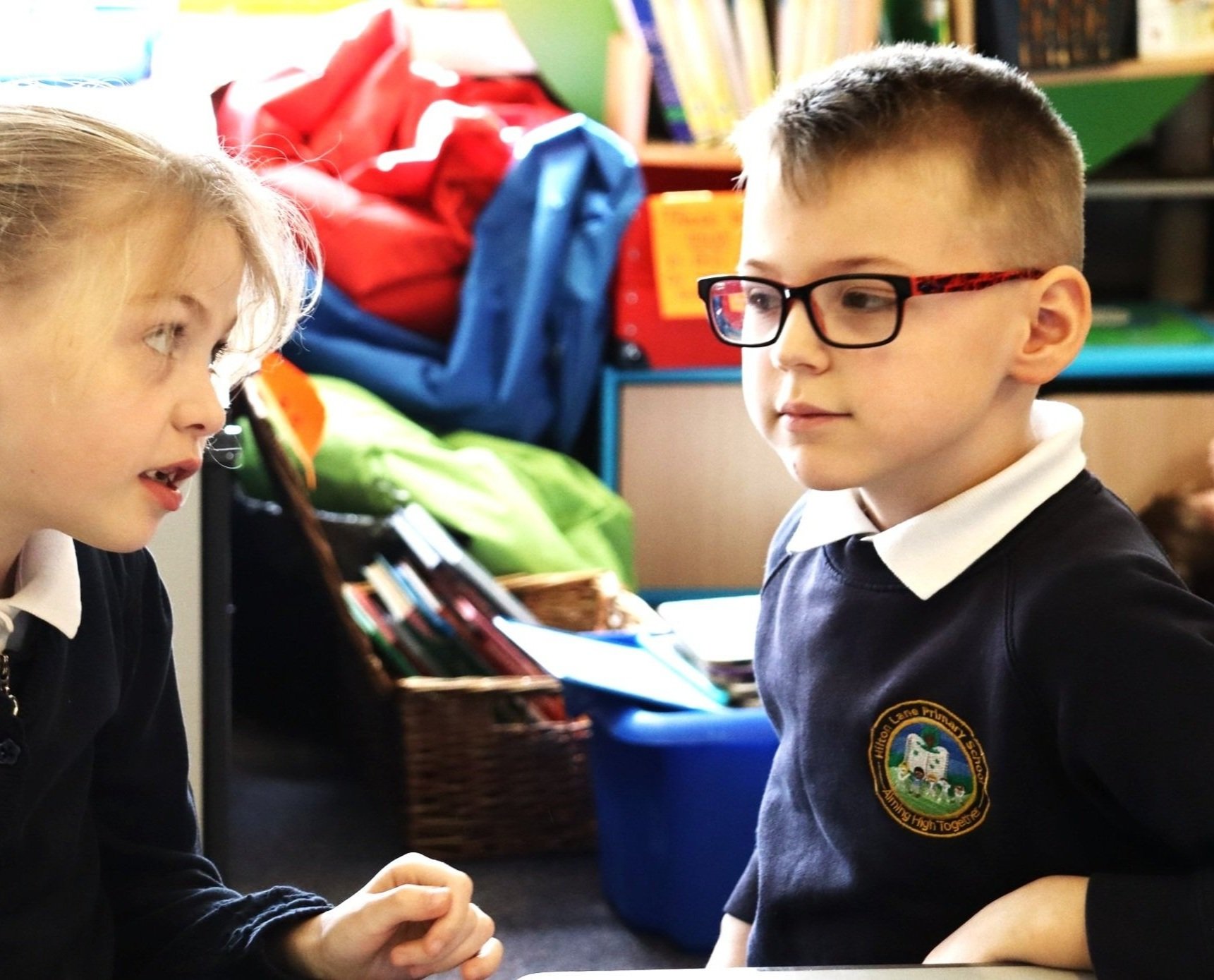




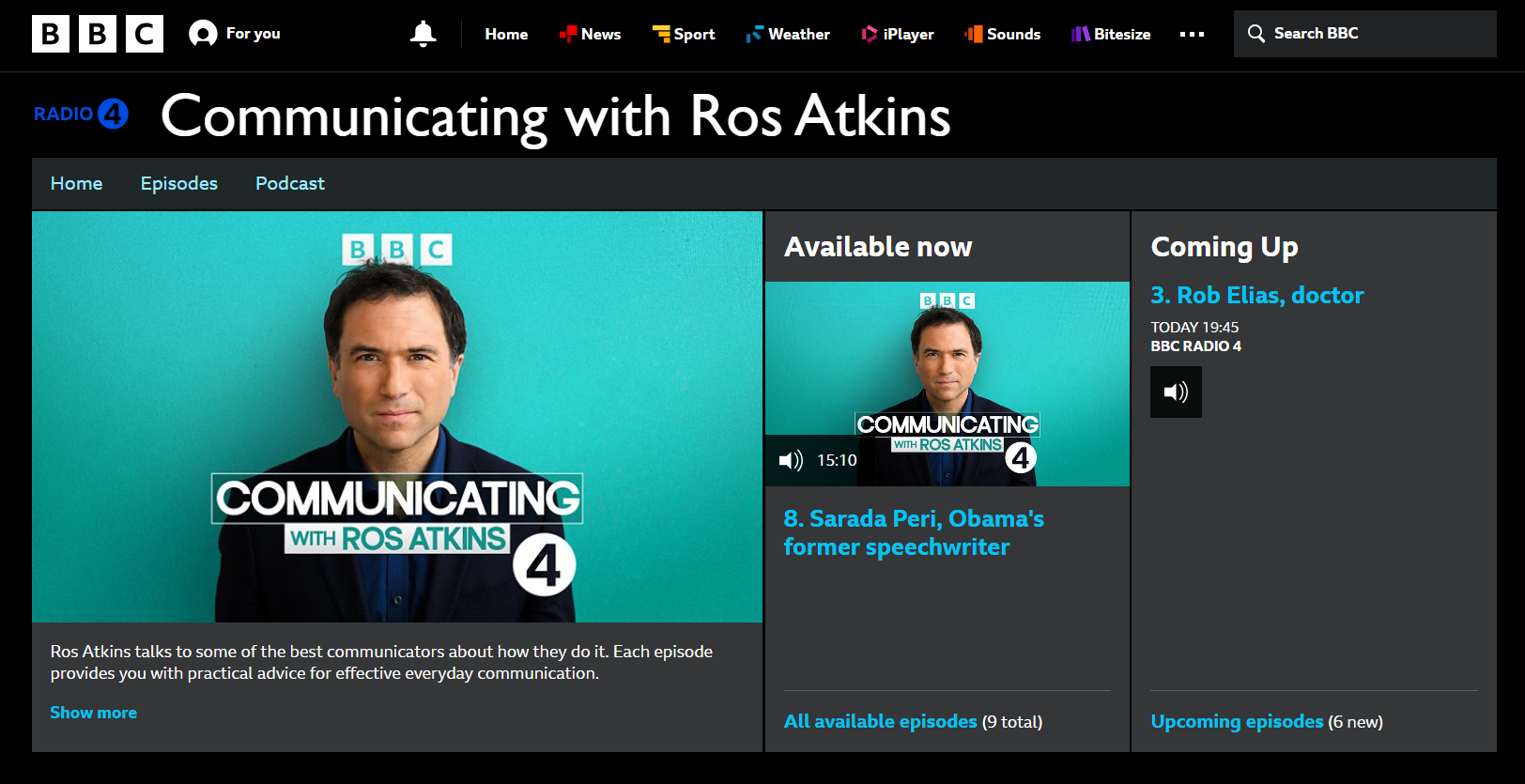


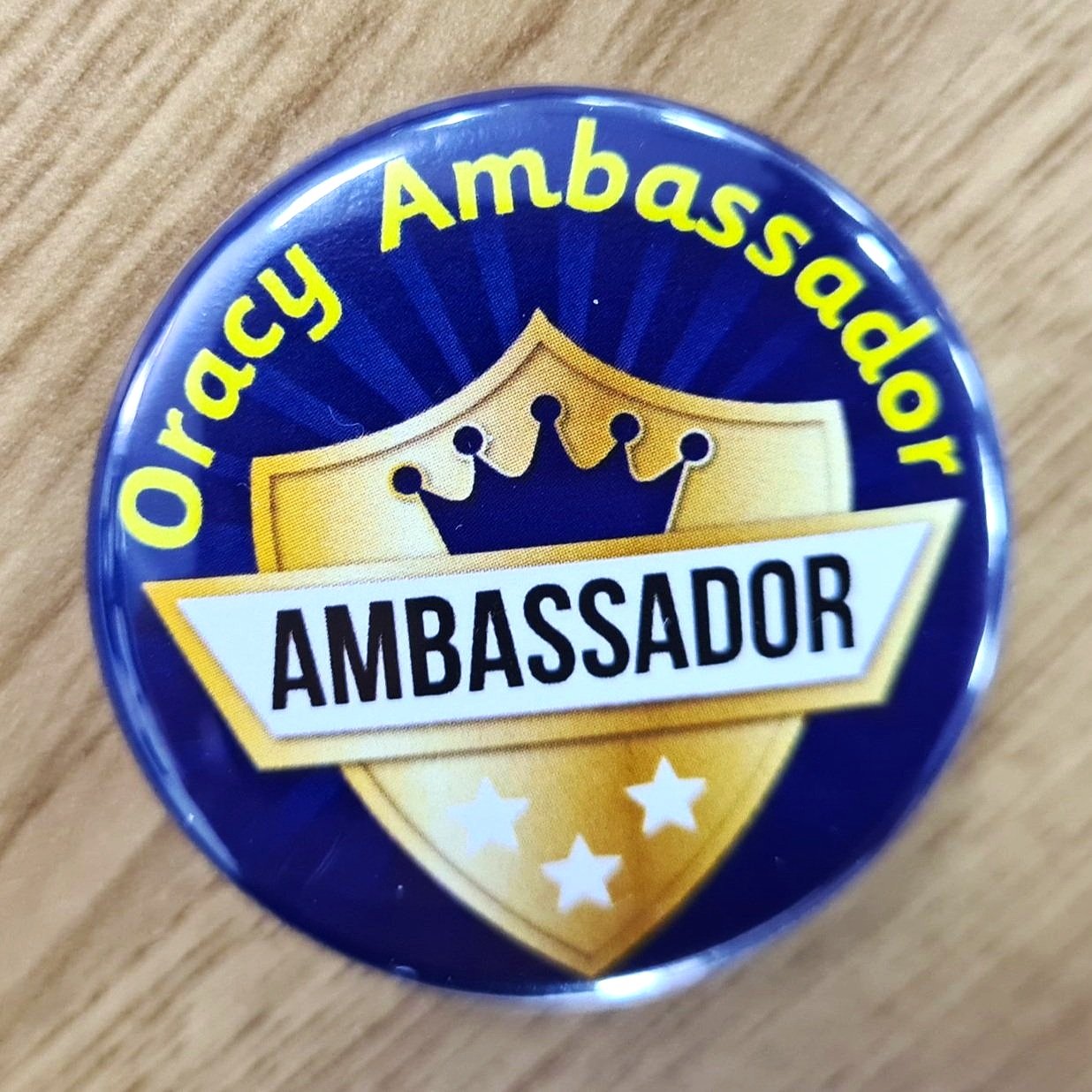
Can they remember what everyone else said?